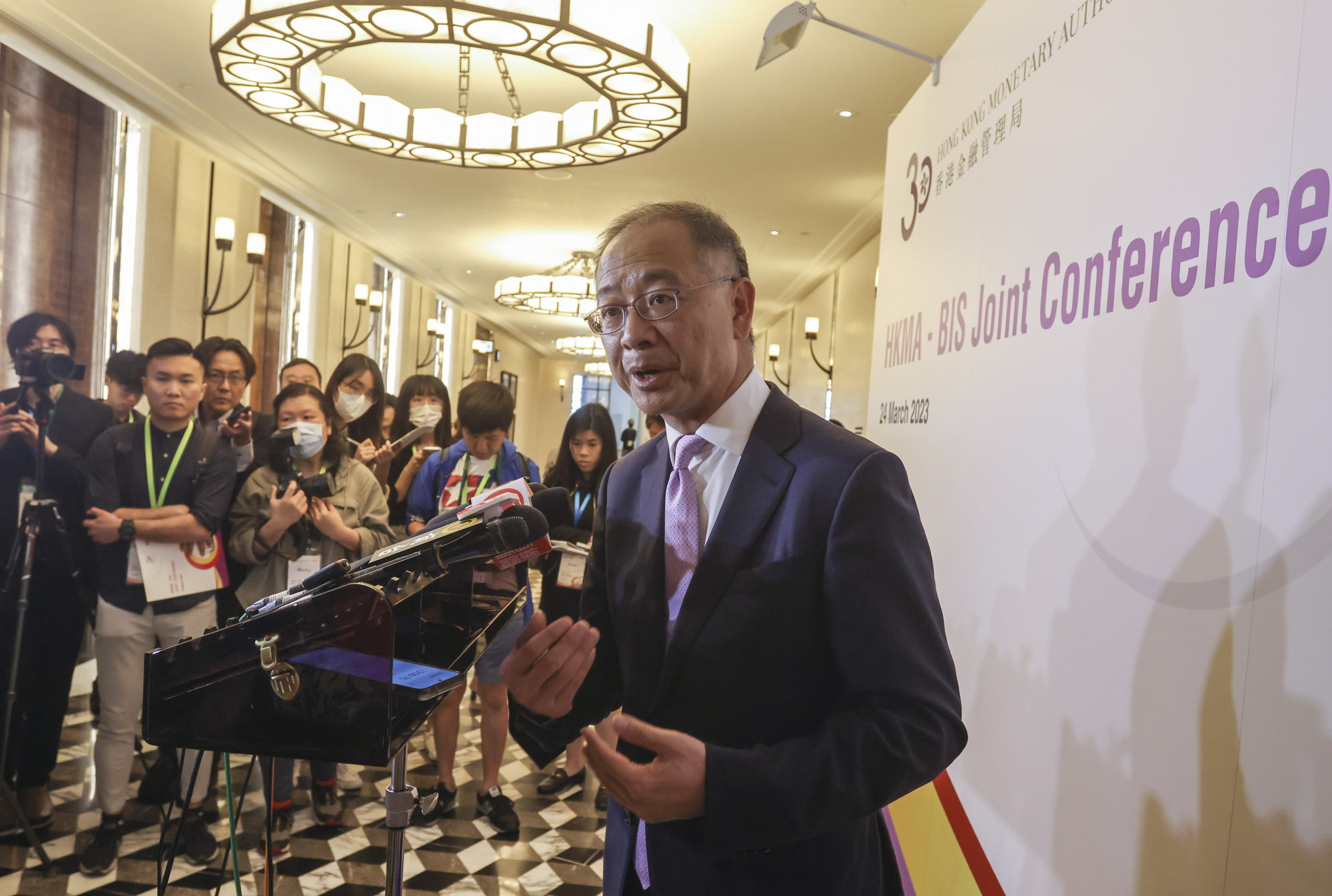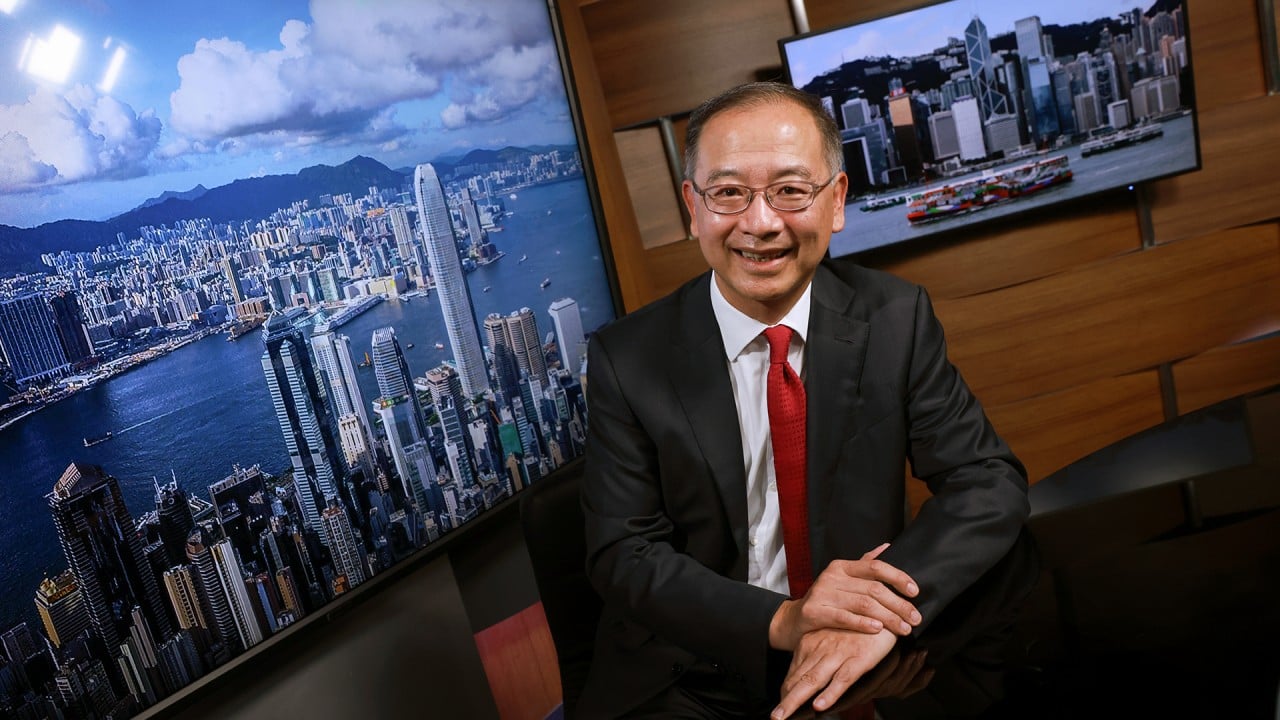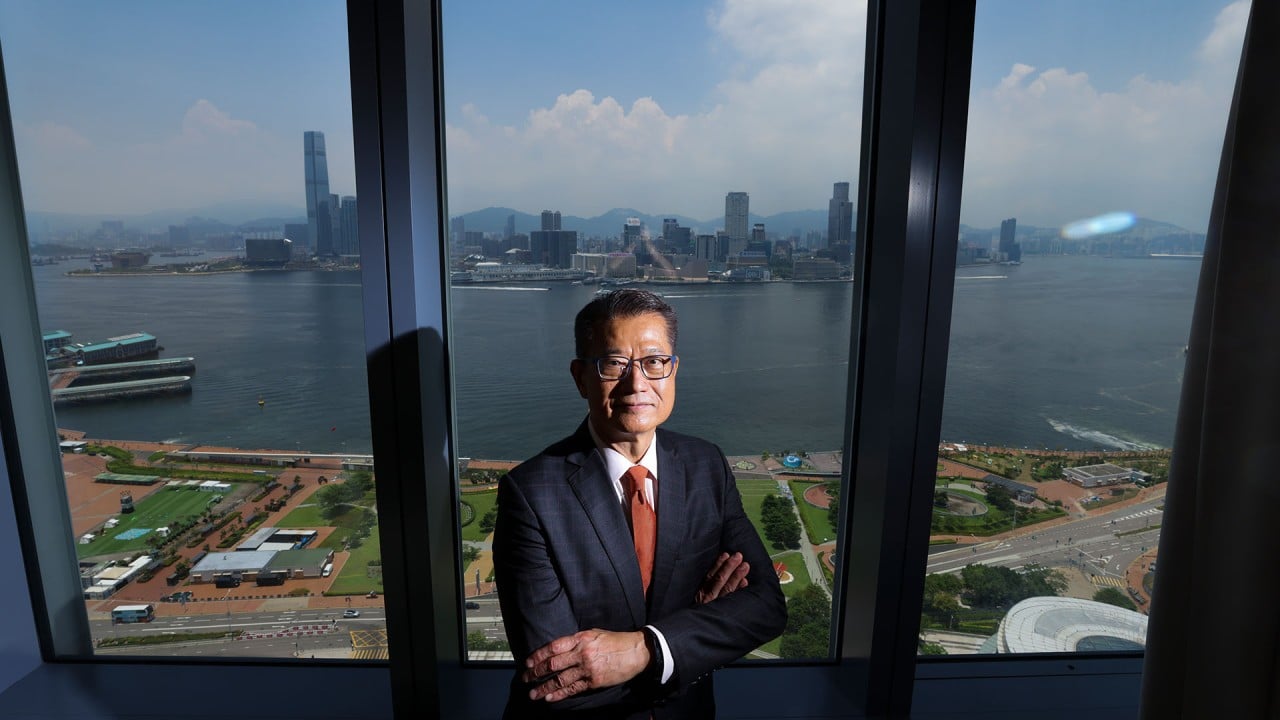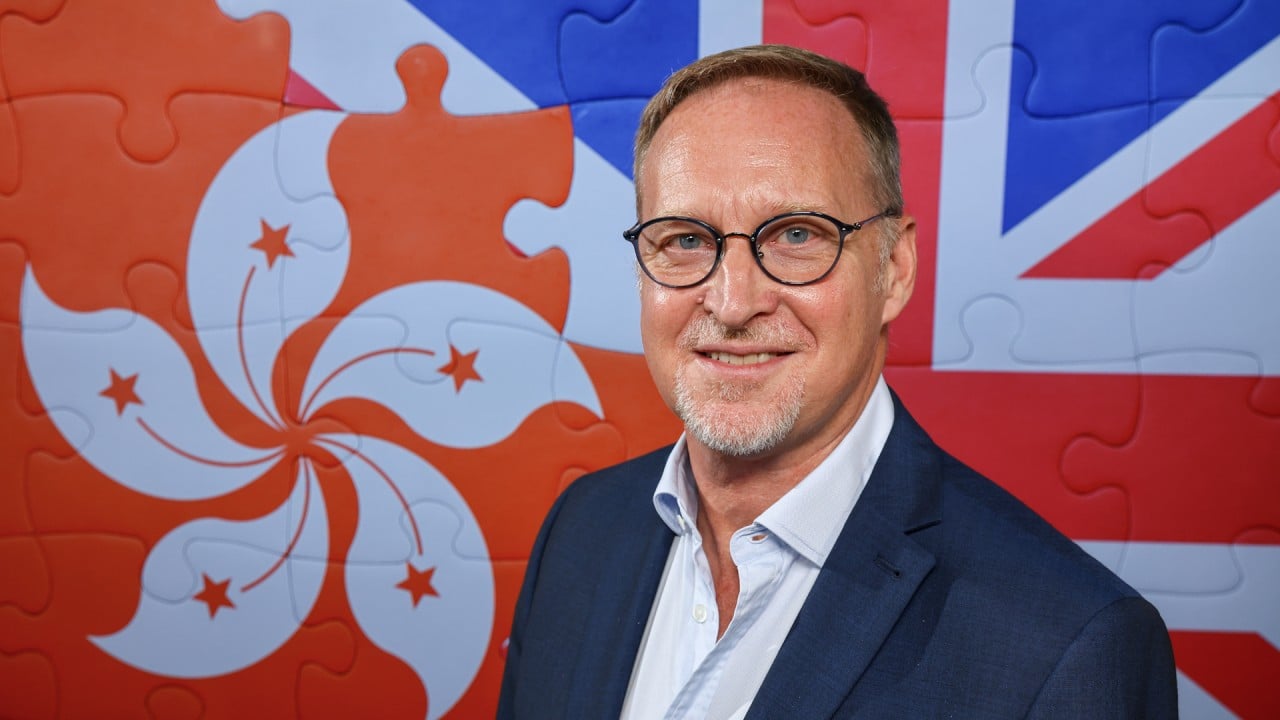
HSBC, Standard Chartered among top Hong Kong banks raising prime rates as HKMA warns of pressure on local funding costs
- The HKMA raised its key rate to a 15-year high, in what could be the last hike in 2023; it also intervened in the currency market to defend the Hong Kong dollar
- HSBC, Standard Chartered, Bank of China (Hong Kong) and other lenders will raise their prime rates by 12.5 basis points from as early as Friday
HSBC and its subsidiary Hang Seng Bank will reset their best lending rates to 5.75 per cent from 5.625 per cent, starting on Friday, according to separate statements, while Bank of China (Hong Kong) will reprice to the same level from Monday. Standard Chartered and the Bank of East Asia have decided to raise to 6 per cent from Monday.
All of them will concurrently increase their savings rates by 12.5 basis points to 0.75 per cent per annum.
The changes are the first by the lenders this year, after three hikes in 2022. The HKMA earlier on Thursday lifted its base rate by a quarter-point to the highest level since 2008 in lockstep with the Federal Reserve’s move that some analysts regarded as the final increase this year.
“We believe the adjustments are appropriate considering the macroeconomic environment, [interest rate] trends as well as the impact on our economy,” Luanne Lim, CEO of HSBC Hong Kong, said. “We will continue to monitor the external environment and be prepared to adjust our rates if needed.”
The one-month Hibor or Hong Kong interbank offered rate, a measure of the interest banks charge each other, rose to 3.63 per cent on Thursday, versus about 3 per cent a month ago and 2.65 per cent in February. The three-month Hibor, a benchmark for corporate loans, climbed to 3.99 per cent on Thursday from 3.68 per cent a week ago.

“Homeowners in Hong Kong have strong repayment ability and the local economy has bounced back,” said Eric Tso Tak-ming, chief vice-president at mReferral, a local mortgage broker. “The rate increase is not that high, and will not have a big impact on the property market.”
A 12.5-basis point increase will add HK$347, or 1.6 per cent, to HK$22,452 in monthly instalments on a typical HK$5 million, 30-year mortgage loan, Tso estimated. About 87 per cent of new loans in March were pegged to interbank rates, and 9 per cent to prime rates, according to HKMA data.
Including the latest move, Hong Kong’s commercial banks have now raised their prime rates by a total of 75 basis points since the Fed began its “lift-off” in March last year, while central bank rates have jumped by a cumulative 500 basis points.
The HKMA earlier raised its base rate to 5.5 per cent, widely regarded by analysts as the final hike this year. While the Fed boosted its target rate by a quarter point to a range of 5 per cent to 5.25 per cent, it also hinted at an imminent pause amid concerns about bank failures and recession.
The Fed’s latest statement did not repeat a line from its March meeting that “the committee anticipates that some additional policy firming may be appropriate”.
US Fed delivers small rate hike, signals possible pause in tightening cycle
Hong Kong has followed the Fed’s rate decision since 1983 under its linked exchange rate system to preserve the local currency peg to the US dollar. Eddie Yue Wai-man, the HKMA CEO, said while the Fed may have reached the terminal rate, a rate cut this year is “highly unlikely.”
“Some market participants may be over optimistic to expect a rate cut will happen later this year,” Yue said at a media briefing. “The recent financial distress of individual US regional banks has resulted in credit tightening [in the US].”
Shares of US regional lenders such as PacWest Bancorp sank earlier this week before the Fed decision, following a series of failures including Silicon Valley Bank and First Republic Bank. Still, the events have no real impact on the local financial industry, Yue added.
A majority of the 12 Hong Kong-based analysts surveyed by the Post last week believed Thursday’s expected rate hike would likely be the last hike this year, citing heightened recession risks. They were, however, split on whether commercial banks will raise their lending rates.
Samuel Tse, an economist and strategist at DBS Bank in Hong Kong, said other commercial banks are likely to follow HSBC’s lead. The local interbank rates have started to pick up as the HKMA’s aggregate balance depletes, he added.
That is bad news for Hong Kong’s real estate market. Primary and secondary market transactions amounted to HK$204.9 billion in the first four months, a 23 per cent surge from a year earlier, according to Midland Realty. They slumped 40 per cent to HK$554.6 billion in 2022. Home prices rose to a six-month high in March, official data showed.
Hong Kong’s economy expanded 2.7 per cent in the first quarter, after shrinking in the preceding two quarters, commonly defined as recession. The rebound surpassed market consensus for a 0.5 per cent gain, aided by spending from government cash vouchers.




